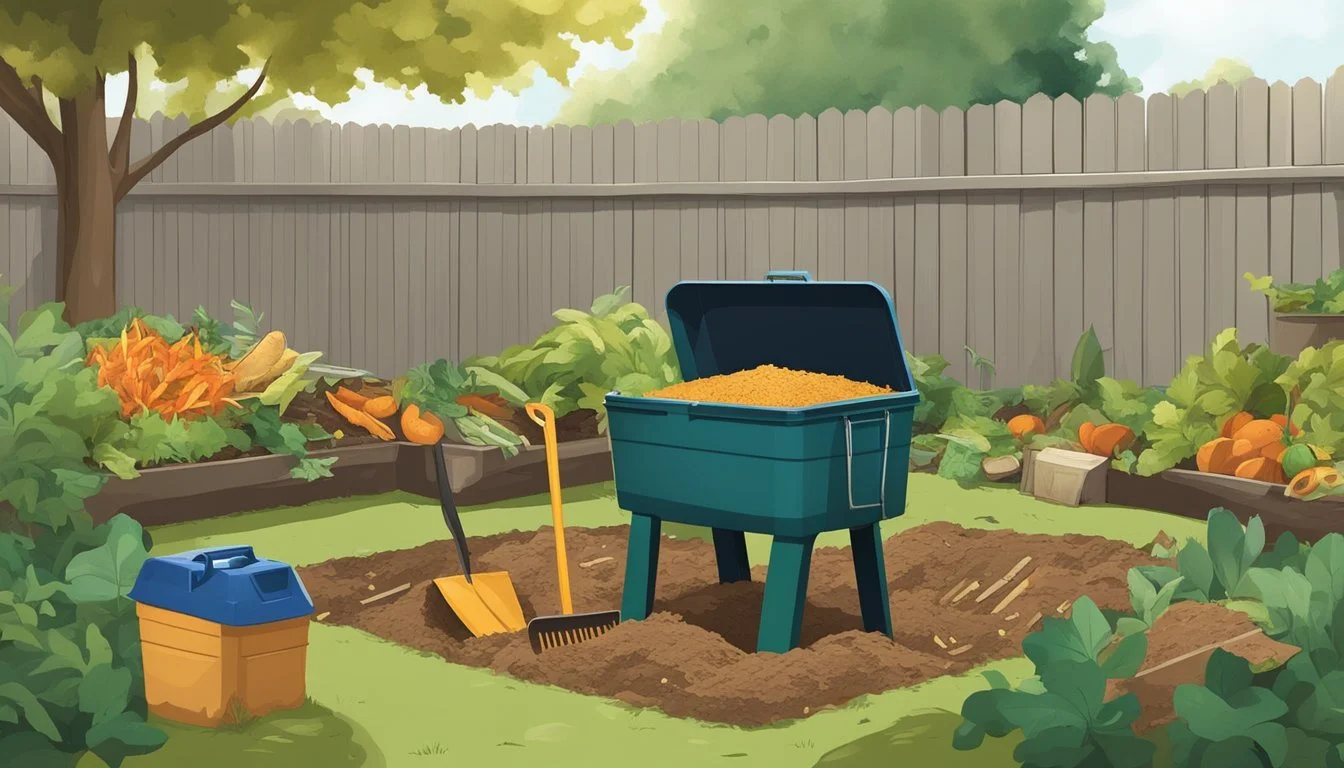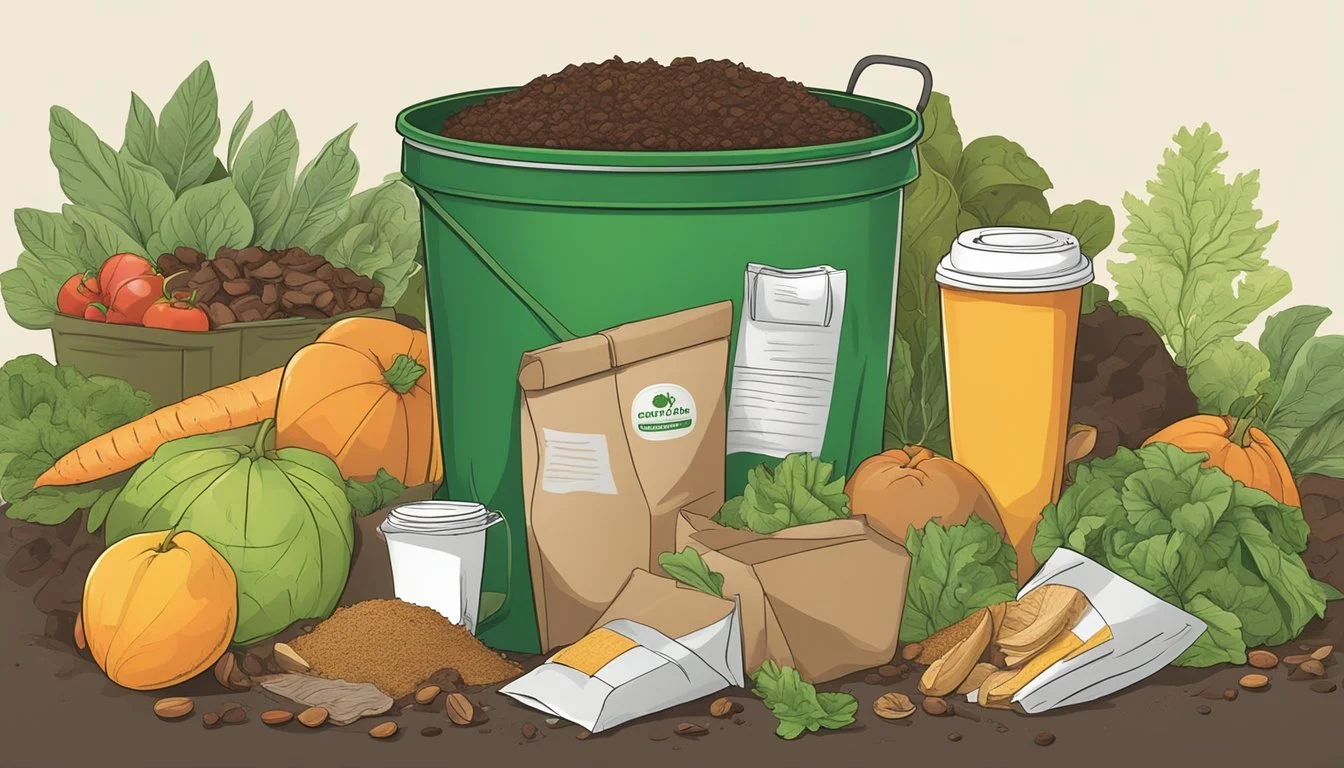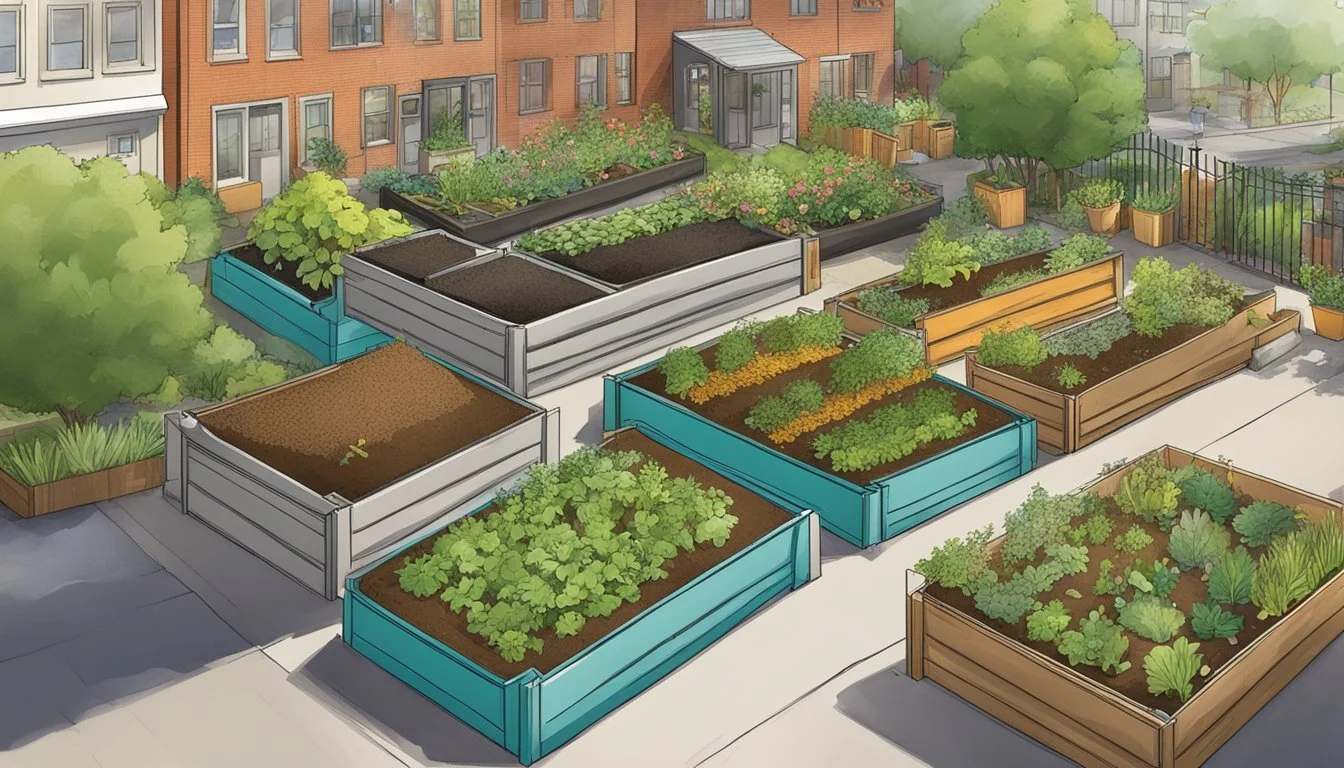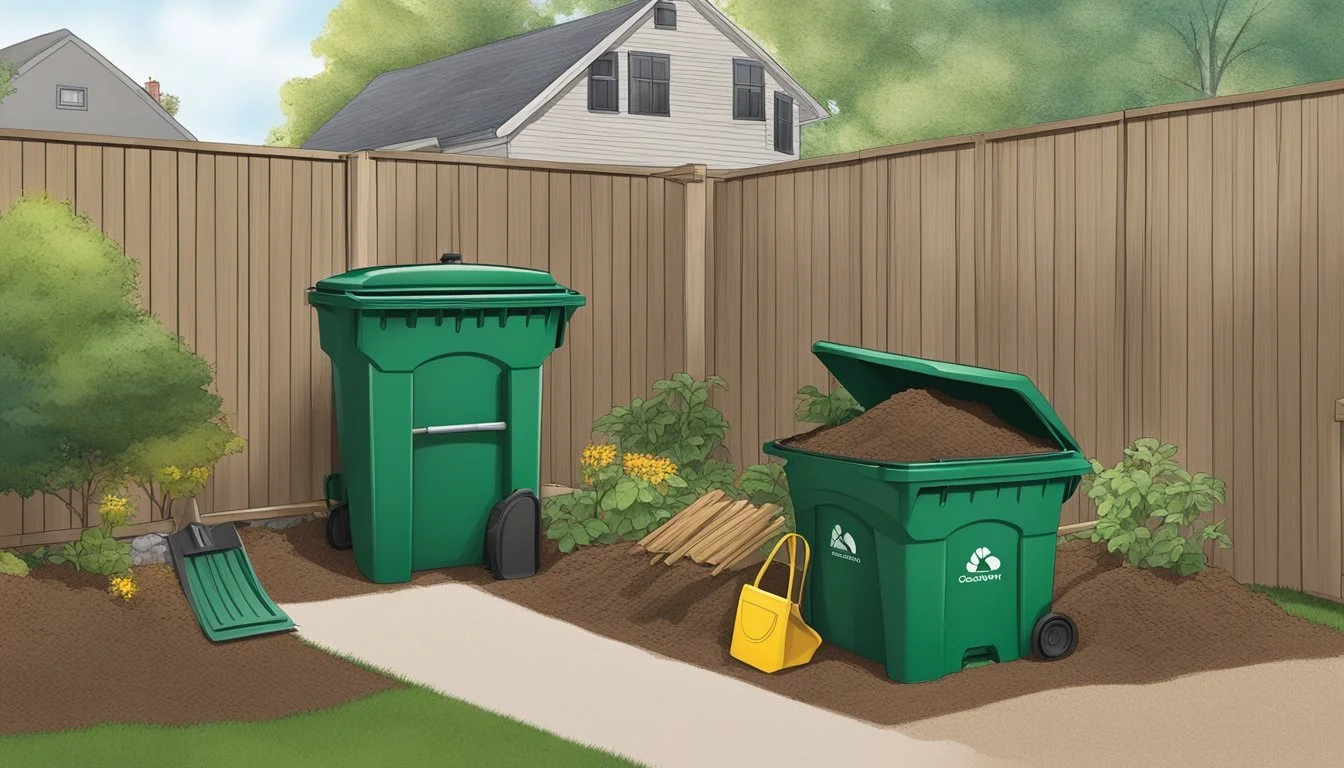Guide to Composting in Albany, NY
Essential Tips for Local Residents
Composting in Albany, NY, presents an opportunity for residents to contribute positively to waste reduction and climate change mitigation by recycling organic waste. As one of the simplest and most effective environmental practices, composting transforms organic household waste into valuable fertilizer, diverting it from landfills where it would release methane, a potent greenhouse gas. The City of Albany promotes composting as a means to not only diminish the impact of waste on the environment but also to return nutrients to the soil, enhancing soil quality and garden health.
In Albany, the local government has established a variety of composting initiatives and educational resources aimed at encouraging residents to engage in this sustainable practice. These include backyard composting, community composting programs and accessible composting facilities. Albany's composting programs are tailored to assist the city dwellers in understanding what can be composted, such as fruits, vegetables, coffee grounds, and more, while outlining materials to exclude, like meats and dairy products, to maintain a healthy and odor-free composting process.
Through its actions and resources, Albany is fostering a city-wide culture of environmental stewardship. The city’s efforts include partnerships with organizations such as the Radix Ecological Sustainability Center, providing comprehensive instructions on how to start and maintain a composting system. Residents can take advantage of free compost and mulch available through municipal programs to cultivate their gardens, creating a closed-loop system that benefits the environment and the community.
The Basics of Composting
Engaging in the process of composting in Albany, NY allows residents to recycle organic material, create nourishing soil, and contribute to environmental conservation by reducing landfill waste and greenhouse gas emissions.
What is Composting?
Composting is the natural process of decomposing organic material such as food scraps and yard waste into a dark, earthy, soil-like substance. When organic material is managed correctly in a compost pile, it breaks down through the activity of microorganisms, insects, and even worms, eventually transforming into a rich additive for soil that is beneficial for plant growth.
Benefits of Composting
Composting presents multiple benefits for both the environment and the garden. It enriches the soil, helping retain moisture and suppress plant diseases and pests. Additionally, it reduces the need for chemical fertilizers and cuts down methane emissions from landfills, a significant greenhouse gas contributing to climate change. By composting, Albany residents can play an active role in waste reduction and sustainability.
Composting Materials: Browns and Greens
Browns (Carbon-rich materials):
Dry leaves
Straw and hay
Wood chips
Shredded newspaper
Cardboard
Greens (Nitrogen-rich materials):
Food scraps
Grass clippings
Plant cuttings
Coffee grounds
The successful compost pile should have a balance of both browns and greens—approximately a 3:1 ratio of browns to greens is ideal. Browns contribute carbon, while greens supply nitrogen. Together, they support the microbes that break down the pile, turning it into useful compost for enhancing soil quality. Composting also helps to reduce the volume of organic material sent to landfills, thus diminishing methane production.
Setting Up Your Compost Bin
When implementing backyard composting, the selection of a suitable compost bin and its placement are critical first steps. The objective is to create an environment where organic materials can effectively break down through the natural processes of decay facilitated by water, air, and turning.
Choosing the Right Bin and Location
Selecting an appropriate bin for composting is essential. One can find detailed guidelines for bin selection including the various options that suit different needs. It's important to place your bin in a location that is convenient to access, has good drainage, and receives partial sunlight to aid in the decomposition process.
Layering Your Compost Pile
A well-structured compost pile consists of alternating layers of 'greens' (such as vegetable scraps) providing nitrogen, and 'browns' (like dried leaves) providing carbon. This layering technique aids in optimizing the conditions for microbes to thrive, which in turn speeds up the decay process. Maintain a balance by adding equal amounts of each material type.
Maintaining Your Compost Pile
Regular maintenance of the compost pile ensures efficient decomposition. This involves routine turning to incorporate air and a consistent check on moisture levels, keeping the pile as damp as a wrung-out sponge. Monitoring your pile's progress helps in identifying if additional green or brown materials are needed to maintain balance.
What to Compost and What to Avoid
Composting in Albany, NY, is a practical way to recycle organic waste, but it requires knowing what materials are beneficial for your compost pile and which should be left out to avoid attracting pests or creating odor problems.
Green Waste
Green waste should make up a significant part of your compost mix. This includes:
Food scraps: fruits and vegetables, coffee grounds, eggshells, and bread.
Garden trimmings: fresh leaves, grass clippings, and plant cuttings.
These items are high in nitrogen, which is crucial for composting.
Brown Waste
To balance your compost pile, brown waste, which is high in carbon, is essential. Brown waste includes:
Dry materials: fallen leaves, straw, sawdust, wood chips, and shredded paper.
Fiber: corrugated cardboard (without waxy coatings) and untreated paper.
The right mix of brown waste ensures the compost pile decomposes effectively without becoming too wet.
Materials to Exclude
Not everything can go into your compost bin. Materials to avoid include:
Animal products: meat and bones, as they can attract pests and cause odor.
Treated yard waste: plants or wood treated with pesticides or chemicals, as they can contaminate the compost and harm beneficial composting organisms.
By excluding these materials, you'll ensure a healthy, odor-free composting process.
Composting in Albany: Community Efforts and Resources
Composting initiatives within Albany highlight a progressive approach to managing organic materials, aiming to reduce landfill waste and foster sustainable practices.
Local Composting Sites and Initiatives
The City of Albany has demonstrated a commitment to ecological sustainability, notably through the implementation of local composting sites and initiatives such as the Radix Ecological Sustainability Center and Friends of Tivoli Preserve. Both entities serve as valuable resources, offering tangible practices for community composting and education on environmental stewardship.
Albany's Radix Center takes a hands-on approach, actively engaging with the community to demonstrate composting techniques and the positive impact on soil health. They connect composting to broader themes of urban sustainability and resilience.
Meanwhile, the Friends of Tivoli Preserve, working in collaboration with the city, play a crucial role in mobilizing local residents around composting activities, turning everyday organic waste into useful compost that contributes to the health of urban green spaces.
City Policies and Support for Composting
The City of Albany, recognizing the Rapp Road Landfill's limited lifespan, has put forth policies to support composting as a means to extend the landfill's operational years. By diverting organic materials from the landfill, the city is taking active steps to implement environmentally sound waste management practices.
The Department of General Services in Albany facilitates residents' composting efforts through educational programs and material support. They ensure that residents have access to appropriate information and tools to participate effectively in composting initiatives.
New York State, through various grants and policies, further backs the City of Albany's composting endeavors. These efforts align with the state's wider goal to reduce waste and promote recycling and composting across the state.
In essence, both Albany and New York State have embraced composting as a key element in the larger ecological picture, fostering collaboration, granting support, and encouraging community participation in sustainability and waste reduction.
Advanced Composting Techniques
To enhance the productivity of composting and the quality of the resulting fertilizer, exploring advanced composting techniques is essential. These methods can maximize waste reduction and transform organic material into nutrient-rich finished compost.
Vermicomposting
Vermicomposting utilizes specific species of worms, most notably red wigglers, to break down organic matter, turning it into high-quality compost. This technique is highly efficient in converting kitchen scraps and vegetative waste into a powerful fertilizer. The worms digest the waste, and their castings provide valuable nutrients to the soil.
Bokashi Fermentation
In contrast to traditional composting methods, Bokashi fermentation is an anaerobic process that can handle a wider variety of organic matter, including small amounts of meat and dairy. This method relies on inoculated bran to ferment kitchen waste, including fruits and vegetables, thereby accelerating the composting process and retaining more nutrients.
Waste Management Innovations
Recent waste management innovations have made significant strides in maximizing the effectiveness of composting in urban environments such as Albany. Technologies such as in-vessel composters can hasten decomposition, ensuring faster turnaround while minimizing odor. Initiatives promoting these advanced composting strategies can lead to substantial waste reduction and the creation of high-quality, nutrient-rich fertilizers for city gardening projects and landscaping.
Utilizing Finished Compost
Finished compost can transform a garden, providing a rich, nutrient-dense soil amendment that supports plant growth and soil health. Here's how to make the most of it in various applications.
In Your Garden
Finished compost is a boon for garden beds, ready to be worked into the soil at the start of the planting season. Gardeners should sprinkle a two to three-inch layer over their garden beds and carefully mix it into the top six inches of soil. This introduces beneficial microorganisms and essential nutrients, which can improve plant health and yield.
As a Soil Amendment
Using finished compost as a soil amendment is an effective method to enhance the structure and fertility of the soil. It adds organic material, which improves soil aeration, water retention, and provides a slow release of nutrients. For those looking to rejuvenate depleted soils, adding a generous layer of compost can reintroduce the necessary nutrient-rich organic matter.
Creating a Compost Tea
Compost tea is a liquid extract of compost that delivers a wealth of nutrients and beneficial bacteria directly to plant roots. To create it, one must steep finished compost in water for 24 to 36 hours, agitating it occasionally, then strain it and apply it to the soil around plants or spray it on the foliage as a foliar feed, offering a gentle, organic tonic that supports plant growth and vitality.
Reducing Waste Beyond Composting
While composting is a vital component of waste management in Albany, additional methods are essential in achieving comprehensive waste reduction. These tactics not only complement the city's food composting efforts but are also critical in diverting a broader range of materials away from landfills.
Successful Recycling
Recycling in Albany is facilitated through single-stream processing, allowing residents to recycle materials like metal, glass, and paper products without sorting. It’s important to adhere to the city’s recycling guidelines by cleaning and drying these items before placing them in the recycle bin. For larger items and specific materials, the use of designated drop-off centers ensures they are processed correctly.
Reducing Food Waste
Reducing food waste is a proactive approach that works in tandem with composting. Residents can plan their meals, purchase only what they need, and learn preservation techniques to extend the shelf life of their food. Awareness of proper storage methods and embracing leftovers are additional practices that significantly cut down on the amount of food waste generated.
Reusing and Upcycling
Reusing items breathes new life into objects that might otherwise be considered trash. Activities such as donating clothes, repairing household items, and upcycling furniture not only reduce the volume of waste but also conserve resources. Albany encourages the culture of reuse through community exchanges, workshops, and educational programs.
Key Takeaways and Next Steps
With an understanding of composting practices in Albany, NY, individuals are equipped to significantly reduce greenhouse gas emissions and contribute positively to climate change mitigation. The focus is on building sustainable habits, engaging with local initiatives, and fostering education and advocacy in composting.
Building Good Habits
Embarking on the composting journey begins in the backyard with the establishment of a backyard compost bin. Start by segregating organic waste and ensuring that items such as meat, dairy, and plastics are excluded to prevent foul odors. Consistency in these efforts leads to habit formation, eases the composting process, and results in a more efficient operation that enriches the soil without contributing to methane generation in landfills.
Engaging with the Community
Active participation in community-driven programs enhances the composting experience. The City of Albany supports residents through various full service composting solutions, including curbside pick-up services for organic waste. These services facilitate environmental stewardship and reduce the collective carbon footprint, fostering a sense of unity and shared responsibility in addressing climate issues.
Continuing Education and Advocacy
Ongoing learning and advocacy are central to spreading the word and improving composting outcomes. Home composters are encouraged to further their knowledge about best practices and share this information within their network. Engagements such as workshops by the Radix Ecological Sustainability Center and other local entities enable residents to stay informed and influence others to adopt eco-friendly habits, thus amplifying the positive impact on the environment.









